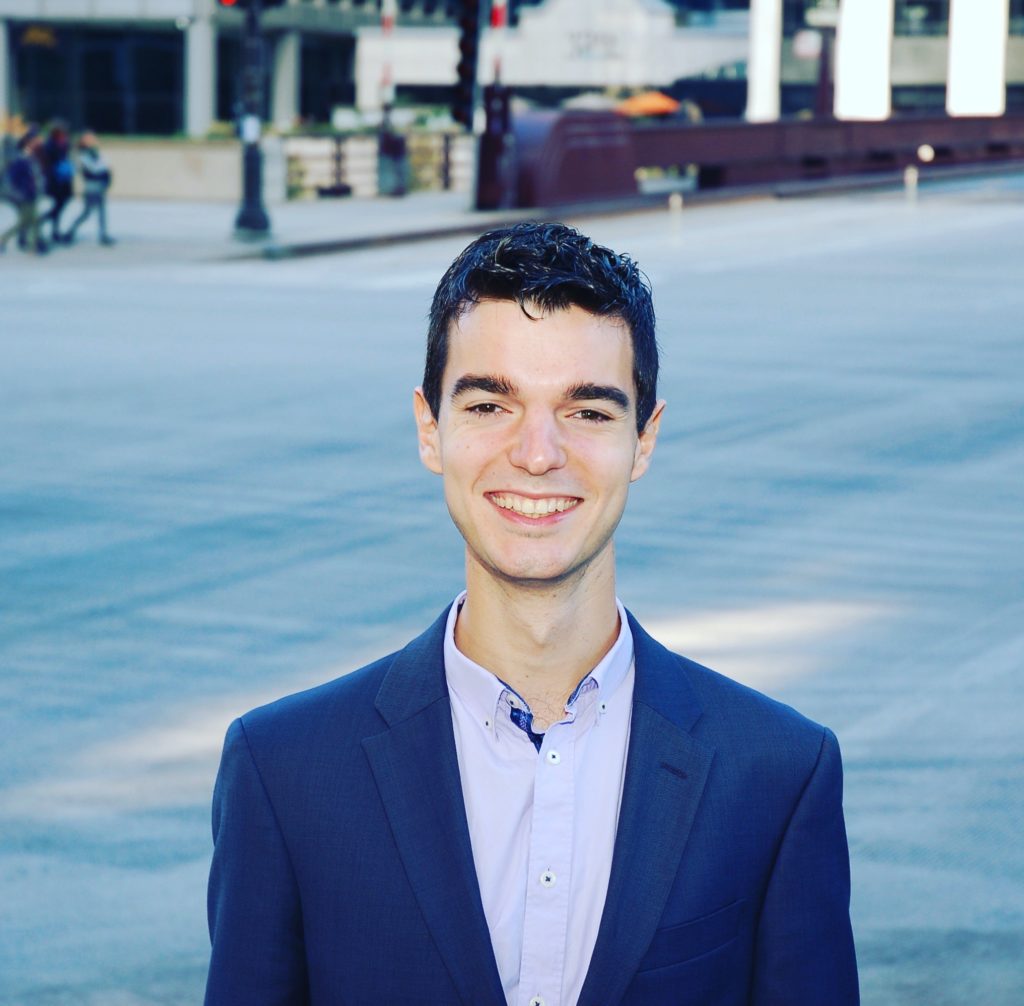Holistic business education
Author: Nick Barella (BBA '18)
An exploration of the stakeholder economy and its role in creating a happier and more sustainable society
 With each passing day following my graduation in May of 2018, I have become continually more thankful for the holistic education I received during my time at the University of Notre Dame. Undoubtedly, the Mendoza College of Business provided excellent technical training for my current consulting position at Protiviti. My finance background coupled with exposure to process improvement, accounting, and key management principles ensured a smooth transition to the real world. However, what I am most grateful for is not the technical expertise, but the nuanced perspective I gained at Mendoza on the purpose of business within our society.
With each passing day following my graduation in May of 2018, I have become continually more thankful for the holistic education I received during my time at the University of Notre Dame. Undoubtedly, the Mendoza College of Business provided excellent technical training for my current consulting position at Protiviti. My finance background coupled with exposure to process improvement, accounting, and key management principles ensured a smooth transition to the real world. However, what I am most grateful for is not the technical expertise, but the nuanced perspective I gained at Mendoza on the purpose of business within our society.
The class that was most influential in building this perspective was Corporate Governance and Catholic Social Teaching, taught by current Dean of Mendoza Martijn Cremers. I walked into our first class with a narrow view of the function of business within our society that seems consistent with much of the broader business community. Current business philosophy remains largely rooted in the principles articulated by Adam Smith in “The Wealth of Nations.” Smith convincingly argued for free markets and an efficient capitalist structure where individuals act in their own self-interest. These ideas led to today’s shareholder focused system in the United States, where the greatest emphasis is placed on returning value to company shareholders. While there is nothing inherently wrong with striving for a high stock price, a myopic shareholder focus fails to give appropriate recognition to the needs of other stakeholders. Through Dean Cremers’ class, I came to embrace the idea of a stakeholder economy, which balances the complex needs of shareholders, customers, employees, and the environment to create a happier and more sustainable society.
Over the past few years, the need for a stakeholder economy has started to permeate the broader business world. BlackRock CEO Larry Fink has underscored the need to focus on objectives other than profit and has particularly expounded on the need for businesses to take an active role in combating climate change. His letters to CEOs outline that BlackRock investments will look past pure profit to evaluate company efforts to do good for society.
Attaining a stakeholder focus for the United States economy will require a societal mindset shift that starts with a focus on values. In author Stephen Covey’s influential “7 Habits of Highly Effective People,” he outlines the process for creating a mission statement that embodies a value system. I have found the process of creating a personal mission statement and reciting it daily to be a powerful impetus towards living my values personally and professionally. Teaching ethics at Mendoza and other business schools also helps encourage future business leaders to look past their self-interest toward the greater good. My Intro to Business Ethics class at Notre Dame helped me develop a thoughtful approach for evaluating ethical dilemmas.
While increased emphasis on living our values and business ethics is a critical first step towards a stakeholder economy, I believe progress will be exponential as we continue to find ways to leverage a stakeholder focus to drive profitability. The two objectives—profitability and a broader view of stakeholder interests—are not competing options in a zero-sum game. I have spent the first few years of my consulting career at Protiviti dedicated to this intersection between profitability and stakeholder value. I have focused on learning and leveraging business performance improvement methodologies that obtain positive results for all key stakeholders. Lean Six Sigma, a methodology based on eliminating waste and creating error-free processes, is a perfect example. When executed successfully, Lean Six Sigma enhances profitability, empowers employees, reduces waste and environmental impact, and creates defect free products for customers. Design Thinking can also broaden awareness of stakeholder needs. Design Thinking exercises like Stakeholder Mapping and Rose, Thorn, Bud drive increased exploration on impacts to different stakeholder groups.
My experience at Mendoza challenged me to think about business more holistically and as a force for good. As Mendoza celebrates its centennial, I look forward to seeing Notre Dame’s business community continue to lead towards an economy focused on justice, humanity, and sustainability in addition to profit.
